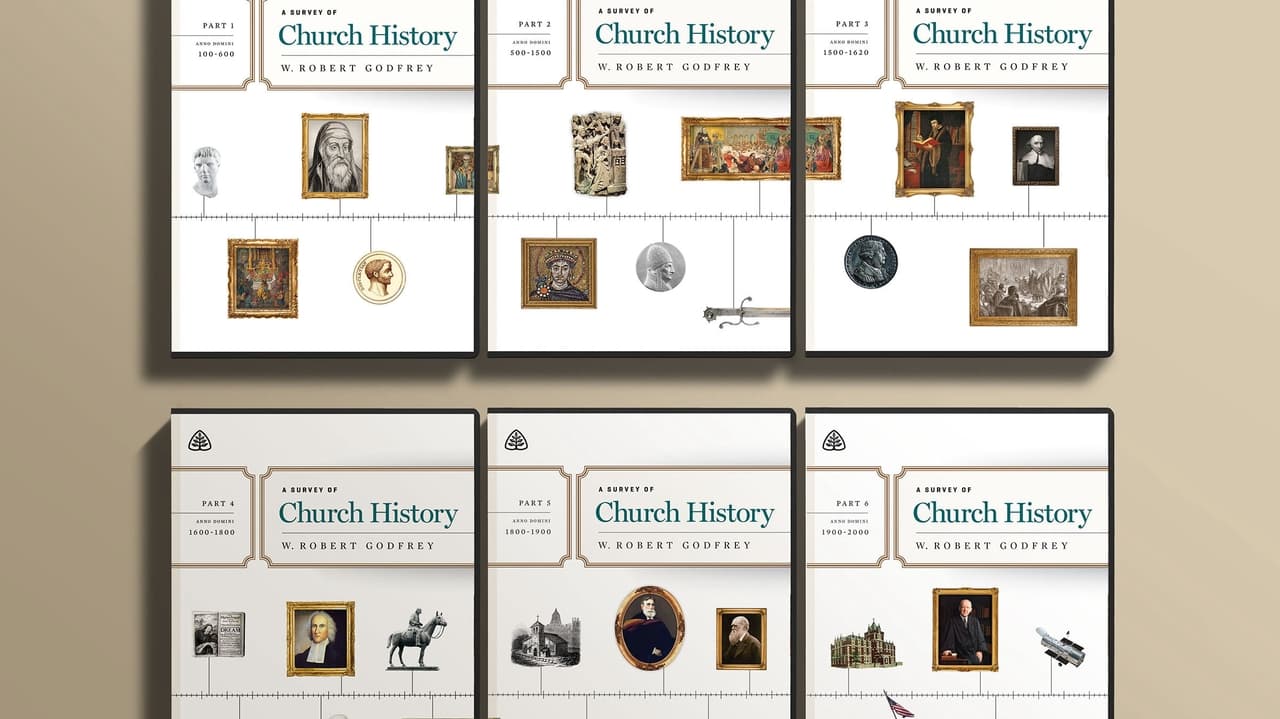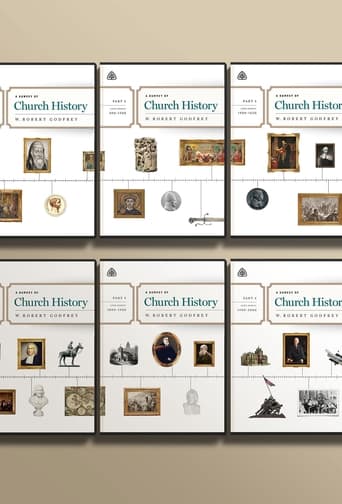A Survey of Church History Season 3

When you look back to study the early church, you're not just getting an interesting history lesson. You're seeing a testament of God's faithfulness and steadfast love for His people. In this series, respected church historian W. Robert Godfrey introduces us to the major figures, events, and contributions from the first five hundred years of the church.
Watch NowWith 30 Day Free Trial!
A Survey of Church History
2013
Our world today has been profoundly shaped by the sixteenth century. In addition to seeing changes in culture and economics, this period witnessed a powerful movement among Christians to bring the church back to the Bible. In this series, respected church historian W. Robert Godfrey tells the stories of those who gave their lives to proclaiming God's Word in the Protestant Reformation.
Watch Trailer
With 30 Day Free Trial!
A Survey of Church History Season 3 Full Episode Guide
The teachings of Jacobus Arminius created significant controversy among Christians in the Netherlands. In the twelfth part of this series, W. Robert Godfrey explains how this crisis resulted in the church officially adopting the distinguishing marks of Reformed Christianity.
Though bitterly opposed by the Dutch monarchy, the Reformation attracted a large following in the Netherlands. In the eleventh part of this series, W. Robert Godfrey describes how the persistent courage of the Dutch people prepared the way for a free Dutch Republic and the Dutch Reformed Church.
As the Reformation spread throughout Europe, Protestants in some nations faced relentless persecution. In the tenth part of this series, W. Robert Godfrey addresses how the Reformation took root in Scotland through the ministry of John Knox, in spite of government oppression.
While many who tried to reform the Roman Catholic Church eventually split off from it, some made progress addressing problems from within. In the ninth part of this series, W. Robert Godfrey outlines how these internal reforms took the Roman Catholic Church in a very different direction than the Protestant churches.
John Calvin was an accomplished intellectual. Were his writings only for brilliant theologians like himself? In the eighth part of this series, W. Robert Godfrey shows that Calvin's scholarly work was actually driven by a pastoral desire to help Christians grow in their faith.
When John Calvin left Geneva, he was sure he would never return. In the seventh part of this series, W. Robert Godfrey depicts the surprising events that equipped Calvin to return to the city and carry on the task that he and Farel had begun there.
Even after Martin Luther's death, the Reformation continued to gather strength throughout Europe. In the sixth part of this series, W. Robert Godfrey takes us to the Swiss city of Geneva where William Farel and John Calvin worked persistently to bring about reform.
As the Reformation gained traction, Christian leaders across Europe sought to bring all of life under the rule of the Bible-often with very different results. In the fifth part of this series, W. Robert Godfrey describes the rise of one movement that puzzled Roman Catholics and Protestants alike.
Martin Luther wasn't the only one who recognized a need to reform the church. In the fourth part of this series, W. Robert Godfrey discusses how Luther needed to grapple with those whose visions for the Reformation differed from his own.
After publishing a seemingly unremarkable critique of the sale of indulgences, Martin Luther found himself at the forefront of unwanted controversy. In the third part of this series, W. Robert Godfrey explains how Luther came to be at odds with the political and religious leaders of his day.
Brother Martin had no greater ambition than to know God's Word. In the second part of this series, W. Robert Godfrey considers how the Lord was preparing this young monk to shape the trajectory of the Christian church.
By the year 1500, many attitudes and institutions of the Middle Ages were giving way to new movements. In the first part of this series, W. Robert Godfrey chronicles why many Europeans also recognized that some of the church's beliefs and practices were in desperate need of reform.
Free Trial Channels
Seasons


























